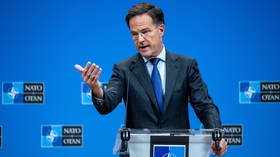Russia to ride out global credit crunch
Financial institutions across the globe are reeling after a nerve-shredding five days on the world's stock markets. Share trading was suspended in Russia for much of last week. But business leaders say the country should avoid the worst of the credit sque
Last week Russia saw market prices tumble at their fastest rate since the default of August 1998, which prompted the collapse of the economy. But reassurances from the president and prime minister and an emergency injection of liquidity into the banking system ensured there was no repeat of the events of a decade ago. Moreover, Russia’s political stability and massive currency reserves mean the country’s wider economy is not directly in danger from turbulence in the market.
However, the sell-off that swept the markets on Tuesday, after borrowing rates doubled, prompted regulators to halt trading mid-Wednesday.
President Medvedev moved quickly to calm nerves.
“We have sufficient reserves, we have a strong economy and this is the guarantee that there won't be any shocks. Right now supporting the stability of our financial system is our main priority,” Medvedev said.
The finance ministry responded by pumping more than $US 40 billion into the system to boost liquidity and encourage banks to keep lending to each other.
The tumultuous week coincided with an annual economic forum in Sochi, where Prime Minister Vladimir Putin echoed Medvedev’s words to instill confidence.
Russian markets rebounded on Friday. The RTS finished 22 per cent higher while the Micex rose 28 per cent. The rise mirrored similar rebounds in stock markets around the globe after central banks poured hundreds of billions of dollars into financial systems in a huge bailout.
Chief analyst at Deutche Bank Russia, Yaroslav Lissovolik, predicted that uncertainty in the markets would only have a minimal impact on Russian households.
“I think there will be some implication in terms of the slowdown but overall I don’t think the effects will be that significant,” Lissovolik said.
Losing the investment game
This week’s financial crisis cost Andrey Stvolinsky around $US 4,000, which sound like small change compared to the losses suffered by investors in Lehman Brothers or AIG. But it showed how the financial trouble in western economies affected stocks in Russia.
“I have lost money. When I started investing there were upward trends and that is not the case now,” Stvolinsky said.
He has only been investing for a year but the rocky road Russia’s market took this week didn't tempt him to pull his money out.
“I’ve got to see what’s happening now after trading was halted,” he added.












